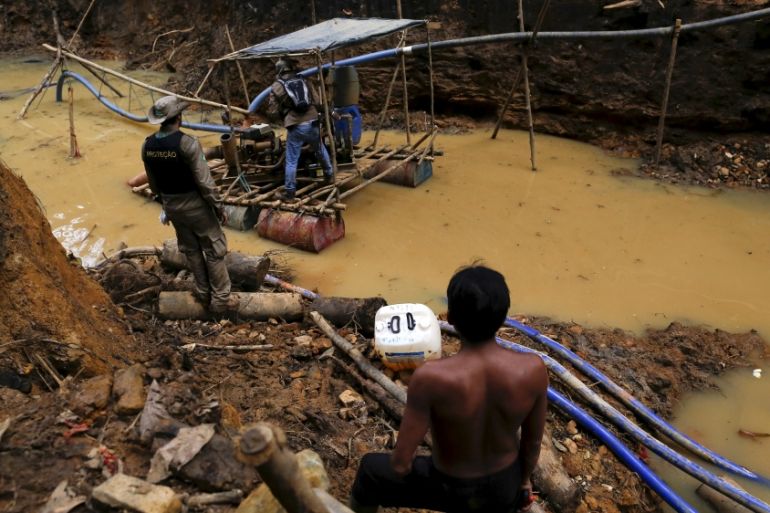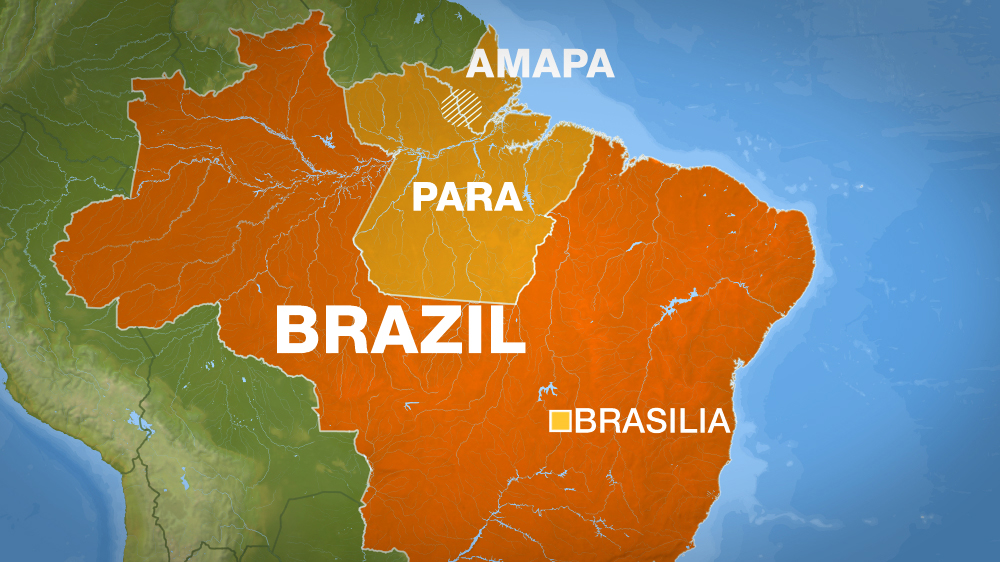Brazil court suspends mining on Amazon’s Renca reserve
Federal court halts decree signed by President Temer allowing the Renca reserve to be scrapped for commercial use.

A Brazilian court has suspended a recent government decree that would open a huge Amazon reserve to commercial mining after the initial decision sparked outrage from environmentalists and political opponents.
The federal court in the capital, Brasilia, said in a statement on Wednesday that it had “partially granted an injunction to immediately suspend any administrative act” aimed at scrapping the Denmark-sized reserve, known as Renca.
Keep reading
list of 4 itemsCould shipping containers be the answer to Ghana’s housing crisis?
Thousands protest against over-tourism in Spain’s Canary Islands
Holding Up the Sky: Saving the Indigenous Yanomami tribe in Brazil’s Amazon
The order from Judge Rolando Spanholo “suspends possible administrative acts based on the decree”, which was signed by President Michel Temer last week.
READ MORE: Brazil scraps Amazon reserve to allow mining
Spanholo said that the government had failed to consult Congress, as required under the constitution, and that the decree would “put at risk the environmental protection (of Renca) and the protection of local indigenous communities”.
The centre-right government’s lawyer immediately said it would appeal the verdict.
|
|
The Renca reserve in the eastern Amazon is home to the indigenous Aparai, Wayana and Wajapi tribes as well as vast swaths of untouched forest, covering more than 46,000 square kilometres.
Renca contains important reserves of gold, manganese, iron and copper which until now have been available only to relatively low-level state-owned mining. Illegal miners also operate in the area.
More than two-thirds of the Renca area that lies in Amapa state is subject to conservation controls or protections for indigenous areas that would limit mining, leaving only 31 percent open to research and exploration, according to a 2010 government report.
Temer says that opening up the gold and mineral-rich area to mining is part of his programme to boost Brazil’s weak economy.
The government insists that vital areas within the reserve, including where indigenous people live, will remain off limits.
However, campaign groups like Greenpeace, the World Wildlife Fund (WWF), celebrities, and Brazil’s influential Catholic hierarchy, have pushed back in an unusually broad-based campaign for Latin America’s biggest country.
“Pressure is working,” Greenpeace said on Twitter after the court ruling. “We mustn’t stop.”
OPINION: Amazon – The final frontier?
Moira Birss, from the non-profit organisation Amazon Watch, had also condemned the decree by the Temer administration.
“The Amazon is extremely crucial to the global climate,” Birss told Al Jazeera last week. “Deforestation and destruction of even small parts of the Amazon have a major ripple effect for the entire global climate.”
Temer, who came to power a year ago after the impeachment of his leftist predecessor Dilma Rousseff, is attempting to enact austerity cuts and market reforms aimed at loosening up Brazil’s stagnant economy.
In July, the president had sent a proposed deforestation bill to Congress seeking to cut preservation areas of the Jamanxim National Forest in the Amazonian state of Para by 27 percent or about 350,000 hectares.
Earlier in August, Brazil’s Supreme Court ruled in favour of indigenous groups after the Mato Grasso state sought compensation for land that had been declared tribal reserves.
